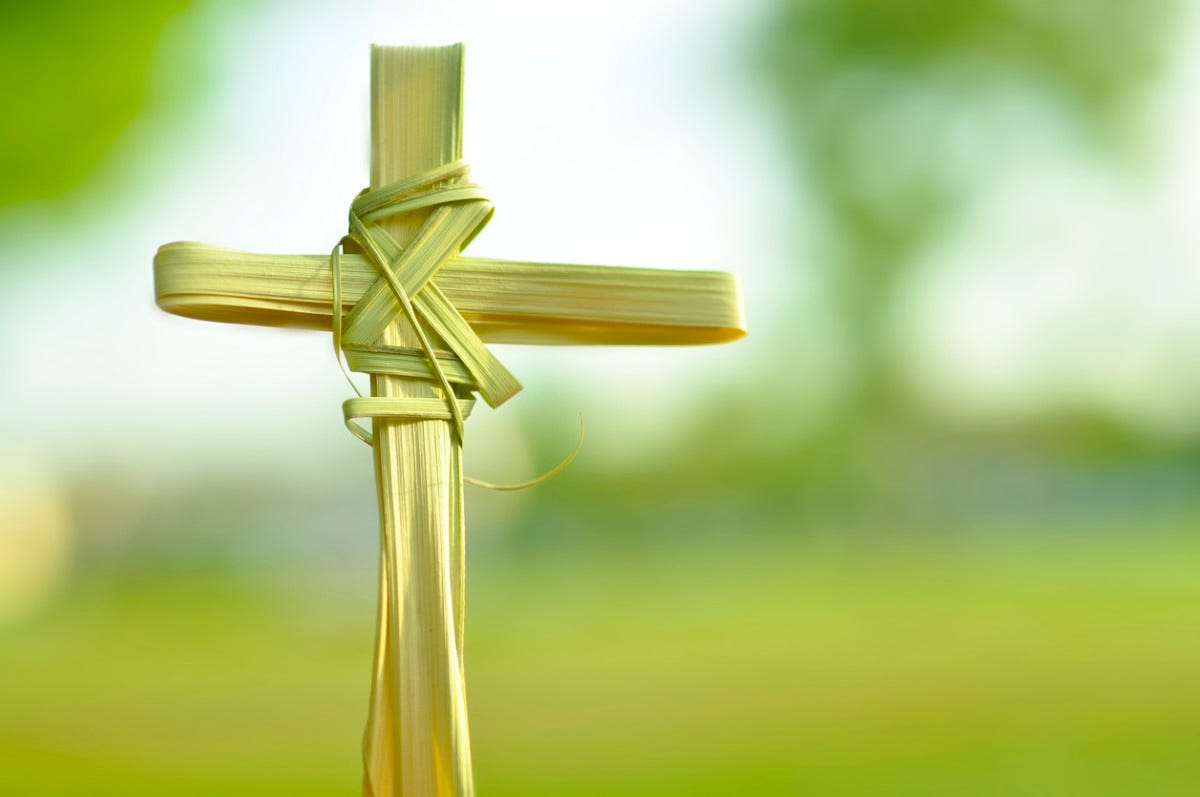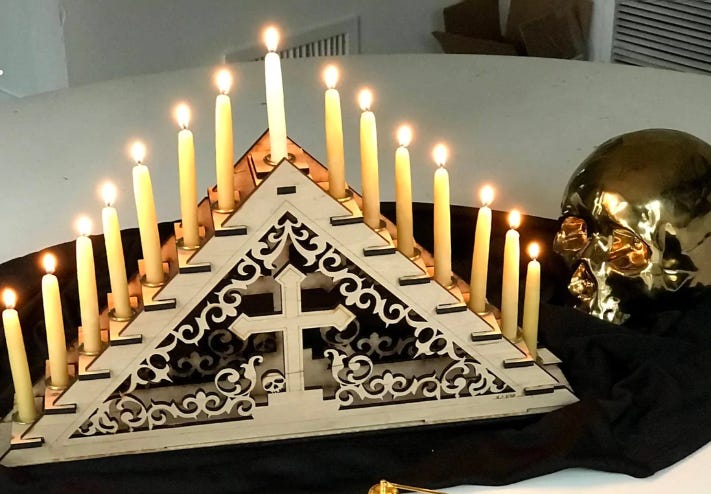Last year we shared that Easter is a season, not just a day. If you missed that one, check it out here. Before we get to the Easter season, however, we have two important weeks ahead of us. This coming Sunday is Passion Sunday which marks the beginning of Passiontide, followed by Palm Sunday and Holy Week. These next two weeks are meant to prepare our hearts and minds for the holiest day of the liturgical year, Easter Sunday.
PASSIONTIDE
Until 1969, the Roman Catholic Church celebrated Passion Sunday on the 5th Sunday of Lent. Passion Sunday and Passiontide were removed from the liturgical year of the Novus Ordo by Pope Paul VI. Passiontide is still observed in the Extraordinary Form, the Personal Ordinariates, and by some Anglicans and Lutherans.
Passiontide is a great time for spring cleaning. The tradition of spring cleaning actually came from Christians preparing their homes for Holy Week and Easter celebrations. This is helpful for me because I find that it is easier to prepare my heart and mind along with my environment and physical surroundings. If you haven't done so already cover crucifixes and religious statues in your home, and remove flowers in preparation for Holy Week. Most parishes will drape violet cloths and remove bouquets either this Saturday evening or next. Most importantly for spiritual preparation, get to confession this week or next. Special penance services are often scheduled during Passiontide and Holy Week.
PALM SUNDAY
The triumphant arrival of Our Lord in Jerusalem has been re-enacted on Palm Sunday around the world for hundreds of years, beginning first in Jerusalem in the 4th Century. The blessing of palms began around the 9th Century and is still a part of the Palm Sunday liturgy today. These sacramentals have been used in the home in a variety of ways in different countries. In her book Around the Year with the von Trapp Family, Maria von Trapp discusses how their family would place the blessed bouquets of evergreens and pussy willows (native plants used in place of palms) in their gardens and fields, as a means of protecting property from the influence of evil spirits or bad weather. Other cultures intricately weave blessed palm branches into Christian symbols. Elaborate egg decorating is an Eastern European tradition, and in Germany and Switzerland decorated eggs are hung in trees and shrubs outside of the home on Palm Sunday. Finally, catechumens are taught the Lord’s Prayer on Palm Sunday as they are welcomed into the Church. This is a good day to take time and reflect on this prayer as a family.
HOLY WEEK
As I mentioned earlier, Spring cleaning is an old tradition associated with preparations during Holy Week. Kendra Tierney of “Catholic All Year”, along with her 10 children, has a detailed and condensed Holy Week cleaning schedule. On Monday they clean living spaces and donate half of all toys and excess craft supplies. Tuesday is for bedrooms, closets, and drawers. Attention on Wednesday turns to the kitchen and eating spaces.
All preparations in the home should be wrapped up early on Wednesday in time to begin the first Tenebrae service in the evening. This beautiful service is done in three parts on Wednesday, Thursday, and Friday and includes 15 candles and solemn chanting. Learn more and watch a Tenebrae service here. Another name for the Wednesday of Holy Week is Spy Wednesday because in the readings today we remember when Judas betrayed Jesus. Some traditions surrounding this day include hiding 30 pieces of silver around the house for children to find. This is a good opportunity to talk about sin and repentance. Both Judas and Peter betrayed Jesus in those final days but only one repented, receiving complete forgiving mercy from Our Lord.
PASCHAL TRIDUUM
Holy Thursday commemorates two very important moments, the Institution of the Eucharist in the Last Supper when Jesus celebrated Passover with His apostles and Jesus’s Agony in the Garden and arrest at Gethsemane. Our family's favorite way to pray and meditate on this day is to prepare and eat a traditional Seder meal like Jesus would have done in the upper room. Not at all traditional, but our fun activity to celebrate the institution of the Eucharist is a rice crispy lamb modeling contest. Another Thursday activity can include washing one another's feet.
Thursday marks the beginning of the Paschal Triduum. This Mass is special because the Eucharist will be consecrated for the final time until the Vigil on Saturday. The host will be removed from the sanctuary and placed on an Altar of Repose somewhere outside of the tabernacle. The seven churches visitation is another tradition for Holy Thursday. There are seven traditional pilgrim churches in Rome. St. Philip Neri is credited with reviving and formalizing the Seven Churches visit as a practice on Holy Thursday. Pilgrims today continue the tradition by visiting the altar of repose at seven nearby churches to pray in front of the Blessed Sacrament.
Fasting and abstinence are a central part of Good Friday but there are a few traditional foods for this day around the world. In Germany, you would likely eat large, soft pretzels with boiled eggs. In 1592, hot cross buns were outlawed by Queen Elizabeth I, another food traditionally associated with Good Friday in England. While these buns could be considered a sweet treat and not appropriate for a solemn day, Kendra Tierney points out, “if they were Catholic enough for Elizabeth I to outlaw, that ought to be good enough for me.”
Two years ago, we added a symbolic lunch and reading of The Passion narrative to our Good Friday tradition. It was a huge hit with the kids and provided great opportunities for conversation. You can find the lunch instruction on Catholic Icing. Good Friday service (not Mass) will include veneration of the Cross which is one of my favorite traditions. It is also a popular day to meditate on the Stations of the Cross. Finally, Good Friday should be a day of quiet, solemn reflection and prayer.
The quiet continues into Holy Saturday. It is a Polish custom to gather ingredients for the Easter meal on Saturday morning into a basket and take them to a local parish for blessing. Preparations for the holiest day continue. Just as we avoided Christmas parties during Advent, we do our best to postpone all celebrating until Easter. This means we often skip community and neighborhood Easter egg hunts that take place on Holy Saturday. While this may be disappointing to the kids, it is an excellent time to discuss and remember the fact that Jesus asked us to live differently as Christians.
Whatever traditions or activities you choose to do with your family in preparation for Easter, I hope they bring you peace and blessings!







